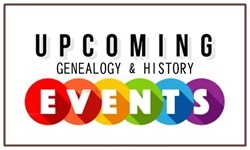Good Reads #1
I’ve been mulling over this post for a while, partly as to if I should even post it, and partly as to what I would call it, if I did.
Anyone who knows me, knows that I read a lot. Excluding books for this purpose, I also read lots of interesting articles and blog posts. And it’s these that form the content of this post. It’s kind of an extension of a previous reiteration of “Inspiring Posts” that I had on a different blog – but I didn’t just want to copy that, so instead this is kind of a mix of interesting articles I’ve read, inspiring ones too, as well as educational posts. So that’s how my “Good Reads” theme has started.
So if you’re after some good reading, get yourself a coffee, and make yourself comfy as I promise you there’s lots of good reads here for you.
INTERESTING STUFF
– Oldest tartan found to date back to 16th Century
– Cartographer and artist Alex Pescud creates hand-drawn aerial map of Wollongong
– Household Dust Harbors Forensic DNA Info
– Who Do You Think You Are? UK returns to BBC One this June with a nine-part star-studded line-up
– ‘We’re Not All Ikea-Loving Minimalists’: The Resurgence of Young Antique Collectors
– Long time no see: Freemasons uncover vault of century-old photo
– How FamilySearch is using the future to discover the past with AI
INSPIRING STUFF
– How to Create A Beautiful Family History Website
– 5 Voice-Recorder Apps for Oral History Interviews
– 5 Priceless Resources for Australian Genealogy Research
– Genealogy is like putting together a puzzle… without the box!
– The Joy of a Genealogy Society Volunteer
– A Record of Australia’s Suburban History Lives in This Archive — and It Was Nearly Lost
– Does Your Genealogy Society Publish eBooks? If Not, They Should
EDUCATIONAL STUFF
– German Naming Traditions Genealogists Should Know
– Consistency in Genealogical Format and Use of Abbreviations
– Trove tips & tricks for newspapers
– Daguerreotype, Ambrotype and Tintype: Telling Them Apart
– 11 Best Websites for Researching Irish Ancestors (Both Free and Subscription Sites)
– Genealogy vs. Family History | Definitions and Examples of Each
– Are FlashDrives Effective For Making Backups of Important Data or Digital Pictures?
– Skillbuilding: Perils of Source Snobbery
– Tutorial: Find Records at the UK National Archives Website
– MyHeritage for Free: 10 Tips for Using It Without a Subscription
So there you go. I know there’s a lot of links there, and while I don’t expect you to read them all, I do hope you found something of interest there. Let me know if you did. And if you enjoyed it, stay tuned for more Good Reads in the future.
The 24-Hour Genealogy Webinar Marathon is on Next Week
The 4th annual 24-Hour Genealogy Webinar Marathon is coming, and it’s on NEXT WEEK, for those in the northern hemisphere is on 13-14 April, for us down south, it’s on 14-15 April! Pop in for a session or two, or stick around for the full 24 hours – it’s completely up to you. And thanks to MyHeritage and Legacy Family Tree Webinars, the entire event is free.
It begins on Thursday, 13 April, at 5pm EST (US time), which translates to Friday, 14 April, 7am (Sydney time), and runs for 24 hours.
Over that period there are 25 presentations from so many well-known genie presenters, including some Aussies and New Zealanders, and the talks cover a wide range of topics.
To make life easy for you, I’ve put the whole schedule below, with both the US time, and the Australian (Sydney) time. But if you’re in a different timezone, use a timezone converter tool, such as Time and Date, or others similar.
Legacy Family Tree Webinars writes …
Just like every year, the entire event is completely free and open to all. You can attend just a few of the webinars that interest you most, or challenge yourself to attend all 25 lectures back to back! Live Q&As will take place during the lectures and there will be door prizes available as well.
Can’t make it in real time? No worries: all sessions will be recorded and made available for free during the week after the event. Beyond that, you can always find them and view them anytime when you purchase a membership to Legacy Family Tree Webinars.
| Eastern Time (US) | Sydney Time (Aus) | Speaker | Title |
| Thu, 5.00pm | Fri, 7.00am | Michelle Leonard | Solving Unknown Parentage Mysteries with MyHeritage DNA |
| Thu, 6.00pm | Fri, 8.00am | Daniel Horowitz | Spanish & Latin American Records on MyHeritage |
| Thu, 7.00pm | Fri, 9.00am | Paul Milner | Liverpool: The Central Hub for Northern Europe’s 19th and 20th Century Emigration |
| Thu, 8.00pm | Fri, 10.00am | Janice Nickerson | The Secret to Finding Your Ancestors’ Stories |
| Thu, 9.00pm | Fri, 11.00am | Mevin J. Collier | The FAN Club Methodology, DNA, and Genealogy Lead Back to Lunatic’s Plantation |
| Thu, 10.00pm | Fri, 12.00pm | Thomas MacEntee | Genealogy A to Z: A Trivia Adventure |
| Thu, 11.00pm | Fri, 1.00pm | Gena Philibert-Ortega | Ancestral Ink: The Social History Behind a Tattoo |
| Fri, 12.00am | Fri, 2.00pm | Michelle Patient | We Remember: Researching, Remembering and Commemorating Those Who Served |
| Fri, 1.00am | Fri, 3.00pm | Fiona Brooker | Slow Down – Planning Your Research |
| Fri, 2.00am | Fri, 4.00pm | Kinga Urbanksa | Polish cemeteries online |
| Fri, 3.00am | Fri, 5.00pm | Fran Kitto | There is more at MyHeritage than family trees and photos |
| Fri, 4.00am | Fri, 6.00pm | Helen V. Smith | To Have but No Longer to Hold: Divorce in Australia |
| Fri, 5.00am | Fri, 7.00pm | Shauna Hicks | Australian indexes online for family history research you might not know |
| Fri, 6.00am | Fri, 8.00pm | Andrea Bentschneider | Different calendars in German genealogy |
| Fri, 7.00am | Fri, 9.00pm | Zbigniew Stettner | Using MyHeritage to research Polish family history and to find living relatives in Poland |
| Fri, 8.00am | Fri, 10.00pm | Natalie Bodle | Unearthing the Treasures in the Irish Registry of Deeds |
| Fri, 9.00am | Fri, 11.00pm | Judy G. Russell | When Enough is Enough |
| Fri, 10.00am | Sat, 12.00am | Nicka Smith | Giving Them Their Glory: First Kansas/US Colored Troops 79th Regiment |
| Fri, 11.00am | Sat, 1.00am | Lisa A. Alzo | Tell Better Family Stories with MyHeritage |
| Fri, 12.00pm | Sat, 2.00am | Jill Morelli | Scandinavian Moveable Feast Days Explained |
| Fri, 1.00pm | Sat, 3.00am | Ugo Perego | An Introduction to Investigative Genetic Genealogy |
| Fri, 2.00pm | Sat, 4.00am | Michael D. Lacopo | The “Forgotten” Immigrants: The Swiss to America |
| Fri, 3.00pm | Sat, 5.00am | J. Mark Lowe | Finding the Original Record When the Index is Unclear |
| Fri, 4.00pm | Sat, 6.00am | Cyndi Ingle | Off the Shelf: The Unexplored Potential for eBooks in Genealogy |
| Fri, 5.00pm | Sat, 7.00am | Elizabeth Shown Mills | Elusive Ancestors: Never Too Poor to Trace |
—————–
So what are you waiting for? Head to the 24-Hour Genealogy Marathon page on Legacy Family Tree Webinars, and click on the talks you’re interested in and ‘register’. Remember it’s free, and if you don’t get a chance to watch them live, you still have 1 week afterwards to watch it free. Alternatively take out a Legacy Family Tree Webinars membership (it’s only US$49.95/year), and you’ll get to watch all of these whenever you choose, along with over 1900 others.
Activities for the Genealogist While Self-Isolating
Are you currently in lockdown, quarantined or self-isolating at home? Looking for some ideas to fill the day?
I know that I could simply write “research” here and you’d all be happy (I would be), but for those of you who may need a break from just “research” on occasions, or don’t have the longer spurts of time required for researching, there’s plenty of useful genealogy-related activities that you can still do. Here’s a few ideas…
————————–
![]() WATCH – Webinars & Videos
WATCH – Webinars & Videos
Webinars and videos are a fantastic way to learn in your own time, and from the comfort of your own home. There literally thousands available to watch, and that’s without going to YouTube and searching for more, and most of them are free.
– Ancestry Academy – Short tutorial videos, covering Ancestry, DNA, methodology and more.
– FamilySearch Webinars – Watch webinars on researching in different countries, as well a numerous general topics (organisation, DNA etc.), as well as how to master the FamilySearch website.
– Legacy Family Tree Webinars – This one is a pay site, but at less than US$50/year, and access to over 1000 tutorial videos, it is SOOO worth it. But just so you know all newly added videos are free for 7 days, before they then go behind the paywall, and you will then need to pay or subscribe.
– MyHeritage Education – There are a heap of webinars available covering how to use the MyHeritage website to advantage, as well as how to build a family tree, general research basics, well as DNA and health tutorials.
– The National Archives (UK) – From using Discovery, to workhouse records, emigration, musters and militia, King Henry VIII, and a whole heap more.
– National Library of Australia – Watch videos on Trove, copyright, old Australian ephemera, media and more.
– New South Wales State Archives – Learn about how to use the NSW State Archive website, and the incredible collection of records they hold.
————————–
![]() LISTEN – Podcasts
LISTEN – Podcasts
Download some podcasts and listen to them while doing other activities.
– AdeLOL – Listen to Adelaide’s history like you’ve never heard it told before
– CutOff Geans – If you’re genealogy interest is specifically DNA, join Julie DIxon Jackson and Renee Colvert as they attempt to guide you through what it takes to use DNA to break down brickwalls, solve mysteries – or find your “people”!
– Downunder Genealogy – This podcast began last year, and there are 10 episodes. Created for Aussie’s, Michael Larman wanted a genealogy podcast with Australian content.
– Extreme Genes – Scott Fisher hosts this podcast and in it he shares genealogy resources and techniques to keep the genealogy researcher moving forward in researching their ancestors.
– Forgotten Australia – Forgotten Australia has been telling the stories we didn’t hear in history class. From the weekend Melbourne went mad and our forgotten Titanic hero, to Australia’s greatest Aboriginal tracker and the murder wave that shocked Sydney in 1932, this is history as you’ve never heard it before.
– Genealogy Gems – Lisa Louise Cooke helps you make the most of your family history research time by providing quick and easy-to-use research techniques. Producer and host Lisa Louise Cooke brings you the best websites, best practices, and best resources available.
– The Genealogy Guys – Listen to George Morgan and Drew Smith chat about different genealogy topics every episode.
– Genies Down Under – This podcast is not currently running, but you can still listen to all the old episodes.
– History Council of South Australia – This link includes links to other podcasts Australia history related podcasts
– National Library of Australia – Listen to various talks that have been recorded at the NLA.
————————–
![]() WRITE – Transcribing & Indexing
WRITE – Transcribing & Indexing
If you’re feeling like ‘giving back’ to the genealogy community, why not sign up for a transcription project or two. There’s plenty on offer, and they cover all sorts of records. Remember every name indexed, is another name that someone can find. Every little bit helps.
– Australian War Memorial – Their transcription tool on the AWM website is not currentlyworking, but they expect to be back online later this year. So keep an eye on the page if you’re interested in their projects.
– Biographical Database of Australia – The BDA is a project that gathers data from government and private sources in the post-convict era in all Australian colonies, and include early published biographical dictionaries, newspapers, diaries and letters.
– Discovering Anzacs – The Discovering Anzacs site a diverse selection of government records about Australians and New Zealanders in World War I and the Boer War.
– FamilySearch Indexing – FamilySearch always has indexing projects on the go, and currently they have over 100 projects from over 20 countries, so you’re sure to find a project that interests you. So pick a country, see what records are available to index. Look at the introductory videos, foloow the step-by-steps, and you’re good to get going.
– Founders and Survivors – Founders & Survivors is a partnership between historians, genealogists, demographers and population health researchers. It seeks to record and study the founding population of 73,000 men women and children who were transported to Tasmania. Many survived their convict experience and went on to help build a new society.
– German-Australian Genealogy & History Alliance – South Australia Land Tax Assessment Registers – This project started a few years ago, but isn’t finished yet. So if you’re interested in helping out, sign up.
– Measuring the Anzacs – Measuring the Anzacs is a NZ military project that contains about 3.7 million pages of images from 140,000 New Zealand service members’ files. The project is currently concentrating their efforts on transcribing History Sheets, Attestations (enlistment forms), Statements of Service, and Death Notifications.
– National Archives of Australia (The arcHIVE) – The arcHIVE, or HIVE as it is commonly known, is the National Archives of Australia’s online transcription portal. It enables volunteers to transcribe digitised item/consignment lists and other records such as Cabinet notebooks, migration records and Post Office records. HIVE gives everyone the chance to help describe items in the collection which are not able to be identified and accessed because they have yet to be listed or described on our online collection database, RecordSearch. To date over 500,000 descriptions of records have been transcribed through HIVE and added to NAA’s RecordSearch.
– The Prosecution Project – Criminal trials have been taking place in Australia since the first days of settlement. The archives of the Australian states are holders of these records, which are among the most complete in the world. The potential of these records for use by family historians as well as researchers has been recognised. The Prosecution Project has started digitising the registers of Supreme Court cases from around Australia, as these record the names of accused as well as their offences and the outcomes of the trials.
– The Ryerson Index – This massive collaborative project has now indexed over 7.4 million death and obituary records from Australian newspapers. They do have some transcription vacansies available at present, so check their website for details.
– State Library of New South Wales – The State Library of NSW has numerous transcription projects on the go, including Captain James Cook’s papers, Sir Joseph Banks’ papers, World War I diaries and letters, and Rediscovering Indigenous Languages amongst others. Register now if you’re interested in helping transcribe.
– State Library of Queensland – The State Library of Queensland is dedicated to making its digital collections more visible and accessible online so that everyone can use and share them, and you can help by becoming a digital volunteer! Tag SLQs photos in Flickr Commons, text correct Queensland newspapers, help transcribe SLQ collection, or tell us your Queensland story.
– State Library of South Australia – The State Library of South Australia needs your help to make their digital collections more accessible and more meaningful so that everyone can use and share them. You can help, by becoming a digital volunteer.
– Trove Newspapers – Text correcting Australia’s old newspapers on Trove is probably Australia’s best known transcription project, and probably the biggest too. It’s just so easy. Simply register, and once logged in, and you’re searching for whatever article topic you choose, correct it when you find it. Then on to the next one. And it means that someone else will then be able to find that article when they go looking. If you’re not sure how to go about text correcting, there are tutorial videos.
– Who Do You Think You Are? Magazine – Over the last few years Who Do You Think You Are Magazine has organised a big-once-a-year-event called “Transcription Tuesday” with the aim of choosing several types of records, which people from all around the world, sign up to, to participate in transcribing them. This years event was held in early February, but due to the Coronavirus and so many people being at home, they are currently holding “Transcription Tuesday Weekly Challenge” every Tuesday (UK time). So keep an eye of their Facebook page or blog to see what records are up next, and sign up for it if you’re interested.
————————–
So as you can see, there is absolutely oodles to do while you’re stuck at home … that is apart from research, watching Netflix, jigsawing and walking the dog. I also know that I haven’t listed all that is available, not by a longshot. But there’s plenty there for anyone who is interested in listening and learning.
The range of topic available though all of these mediums (webinars, podcasts and transcriptions) is so varied I guarantee you will not get bored. I will also say that there is obviously an Australia slant to the list with a few overseas ones thrown in, but that’s thanks to the fact I’m an Aussie. But as mentioned above there are HEAPS more webinars, podcasts and transcription projects going on elsewhere in world. So just google if you want more.
Anyway stay safe, stay indoors, and keep learning.
Listen and Learn With Genealogy Podcasts
So you’re doing genealogy, and you’d like to learn more about history and family history, but you don’t have a lot of spare time, right?
Have you discovered podcasts?
I’m guessing a few hands went up, but most of you are saying “no” as you read this. Some of you might not even know what they are (stick with me as I’ll explain). Anyway podcasts are a fabulous way to learn – not just for genealogy, but any topic. They are simply audio recordings that you can listen to on your computer, iPad or Smartphone, and there are literally thousands of them – all history and genealogy related – and waiting for you to listen to whenever you choose.
With podcasts you can listen interviews with genealogy peeps, information on coming events, reports on past events, reviews on products, and hear plenty of general genealogy news.
Below are just a few of the more well-known genealogy-related podcasts. Note, they are all free to listen to. And no you don’t need a subscription. Just click on the ‘listen’ or ‘play’ button, and start listening. If you have a iPad, or iPhone, most you can download from iTunes.
——————————-
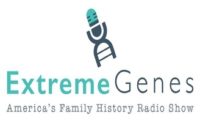 Extreme Genes
Extreme Genes
Extreme Genes is a weekly radio show and podcast about family history. Host Scott Fisher keeps you informed on the latest in family history research around the world, and talks to people about amazing things that have happened while they were doing family history research.
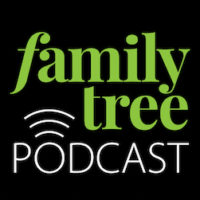 Family Tree Magazine Podcast
Family Tree Magazine Podcast
Hear about the best genealogy tools and tips directly from Family Tree Magazine’s editors and experts! Each month you are taken behind the scenes to learn more about genealogy topics from the Family Tree magazine, books, courses and more. Each episode features interviews with genealogy experts and Family Tree editors on using genealogy websites, records and resources, along with sneak peeks at the latest tools from Family Tree.
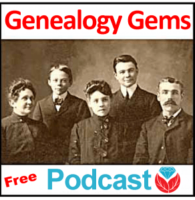 Genealogy Gems Podcast
Genealogy Gems Podcast
The Genealogy Gems Podcast helps you make the most of your family history research time by providing quick and easy-to-use research techniques.
Held monthly, producer and host Lisa Louise Cooke brings you the best websites, best practices, and best resources available!
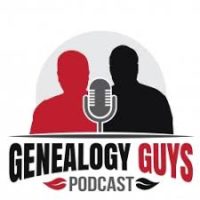 The Genealogy Guys
The Genealogy Guys
George G. Morgan and Drew Smith have been podcasting about genealogy since September 2005, when they launched “The Genealogy Guys Podcast”. Each episode includes the latest news from genealogical companies and organisations, listener email, and other content, such as book reviews and brief interviews. George and Drew delve into all kinds of topics that would interest every genealogist, from the beginner to the expert.
In June 2016, the Guys added “Genealogy Connection”, an all-interview podcast. Drew connects the listener to some of the biggest names in the genealogical community, including researchers, writers, speakers, educators, entrepreneurs, technologists, librarians, and archivists. At the end of each interview, the interviewee recommends to the listener a book, a technology tool, and a methodological tip.
The Genealogy Professional Podcast
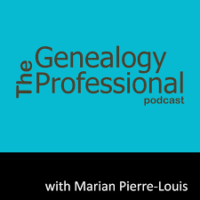 Marian Pierre-Louis is the person behind the Genealogy Professional podcast. This ran from 2013 through until last 2017. Held once a month Marian had a special guest on each time, and asked them a whole range of questions such as what got them into genealogy, what they’ve learnt along the way, what advice they can give others and plenty more. The guests include many of big names from the genealogy scene all around the world, such as Lisa Alzo, Yvette Hoitink, Thomas MacEntee, Christine Woodcock, Caroline Gurney, Helen Smith, Kathleen Brandt, Eileen O’Duill, Lorine McGinnis Schulze, Lisa Louise Cook, Carol Baxter … the list goes on.
Marian Pierre-Louis is the person behind the Genealogy Professional podcast. This ran from 2013 through until last 2017. Held once a month Marian had a special guest on each time, and asked them a whole range of questions such as what got them into genealogy, what they’ve learnt along the way, what advice they can give others and plenty more. The guests include many of big names from the genealogy scene all around the world, such as Lisa Alzo, Yvette Hoitink, Thomas MacEntee, Christine Woodcock, Caroline Gurney, Helen Smith, Kathleen Brandt, Eileen O’Duill, Lorine McGinnis Schulze, Lisa Louise Cook, Carol Baxter … the list goes on.
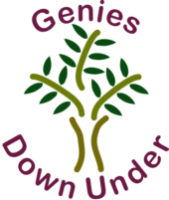 Genies Down Under
Genies Down Under
Genies Down Under is Australia’s longest running genealogy podcast, and ran from 2011 to 2016. This monthly podcast was hosted by Maria Northcote and she gave listeners advice and tips on research, information on upcoming events, event tips like reading between the lines of old documents and looking beyond the faces in old photographs.
With 62 episodes, there’s oodles available to learn from. Each episode had a theme like naming patterns, free stuff, convicts, blogging, tech stuff, immigration, occupations and heaps more.
Irish Family History Centre
![]() Listen to talks that have been held at the Irish Family History Centre. With presenters covering everything from Irish DNA, to different types of Irish records, combined with talks on various aspects of Irish social history, this is a great collection of podcasts to list to.
Listen to talks that have been held at the Irish Family History Centre. With presenters covering everything from Irish DNA, to different types of Irish records, combined with talks on various aspects of Irish social history, this is a great collection of podcasts to list to.
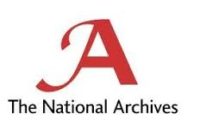 The National Archives (TNA UK)
The National Archives (TNA UK)
If you’re interested in the social history of England, the TNA podcast is one for you. With hundreds of episodes for you to listen to, you’ll be happy camper for months!
There’s everything from the Mapping of women’s sufferage, Jane Austen’s life from beginning to end, the Battle of Agincourt, Traces through Time: a feature for finding records at TNA, England immigrants between 1330-1550, Security files released, Blindness in Victorian England, Prisoners of War and so much, much more.
The Photo Detective
![]() Maureen Taylor is well-known in the genealogy world as “The Photo Detective” and she’s earlier this year she started a podcast/Facebook Live where she answers lots of listener and viewer questions.
Maureen Taylor is well-known in the genealogy world as “The Photo Detective” and she’s earlier this year she started a podcast/Facebook Live where she answers lots of listener and viewer questions.
In just one episode she covers several great questions about identifying Orphan Photos, Conservation of Photos printed on Fabric, looking for clues in tin-types and locating information about old photo studios. Additionally, she provides some terrific resources for finding more ancestral photos and uploading photos to Ancestry.com.
——————————-
So if you are driving to work, catching the bus, or have time to kill while your kids are at sport practice, or whenever else … download some episodes, and get listening, and get learning!
And if you listen to other genealogy podcasts and find them useful, please leave a comment below so others know about them.


